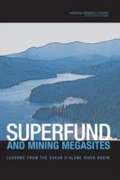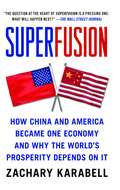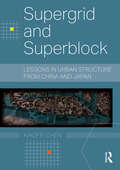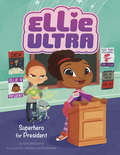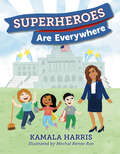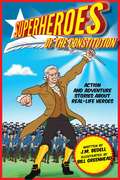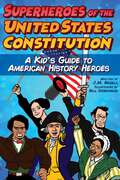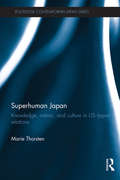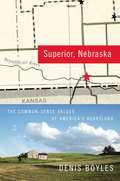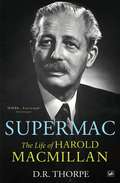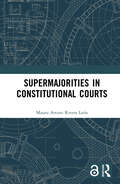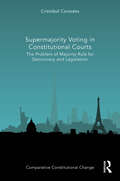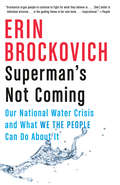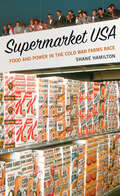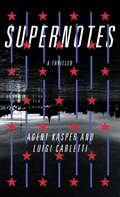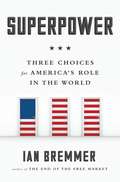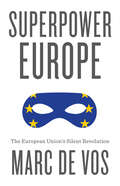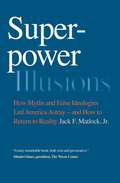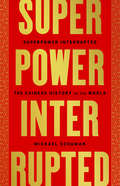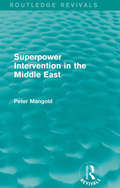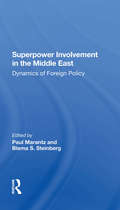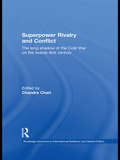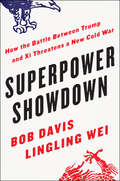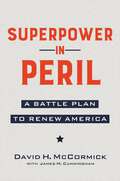- Table View
- List View
Superfund And Mining Megasites: Lessons From The Coeur D'alene River Basin
by Committee on Superfund Site Assessment Remediation in the Coeur d'Alene River BasinFor more than 100 years, the Coeur d’ Alene River Basin has been known as "The Silver Valley" for being one of the most productive silver, lead, and zinc mining areas in the United States. Over time, high levels of metals (including lead, arsenic, cadmium, and zinc) were discovered in the local environment and elevated blood lead levels were found in children in communities near the metal-refining and smelter complex. In 1983, the U.S. Environmental Protection Agency (EPA) listed a 21-square mile mining area in northern Idaho as a Superfund site. EPA extended those boundaries in 1998 to include areas throughout the 1500-square mile area Coeur d'Alene River Basin project area. Under Superfund, EPA has developed a plan to clean up the contaminated area that will cost an estimated $359 million over 3 decades--and this effort is only the first step in the cleanup process. Superfund and Mining Megasites: Lessons from Coeur d'Alene River Basin evaluates the issues and concerns that have been raised regarding EPA’s decisions about cleaning up the area. The scientific and technical practices used by EPA to make decisions about human health risks at the Coeur d'Alene River Basin Superfund site are generally sound; however, there are substantial concerns regarding environmental protection decisions, particularly dealing with the effectiveness of long-term plans.
Superfusion
by Zachary KarabellHow China and America Became One Economy and Why the World’s Prosperity Depends on It
Supergrid and Superblock: Lessons in Urban Structure from China and Japan (Planning, History and Environment Series)
by Xiaofei ChenIn this superbly illustrated book Xiaofei Chen presents the first analysis in English of a ubiquitous East Asian urban phenomenon: the supergrid and superblock urban structure. The book opens with an introductory essay by Barrie Shelton in which he sets the scene for what is to follow, emphasizing how alien this structure was to Western urban design culture where radial patterns of development were the norm. Then, in her first chapter, Chen explains the make-up of the supergrid and superblock urban structure and its contrasting Chinese and Japanese forms. In the following three chapters she digs deep into the history, cultural origins, and underlying design philosophy of the supergrid and superblock to show how, under different cultural influences, the model has developed into two distinct forms. Two further chapters (5 and 6) provide detailed analysis of two sample superblocks in China (in Xi’an and Nanjing) and two in Japan (in Kyoto and Osaka) to reveal the relative advantages and disadvantages of how the structure is manifest in the two countries. In her conclusion she discusses her findings to show how and why the supergrid and superblock structure is a valuable urban design model which, with regional adjustments, can be used effectively in cities other than those of East Asia.
Superhero for President (Ellie Ultra)
by Gina BellisarioEllie Ultra is a leader. As a superhero, she kind of has to be. So when the opportunity to become class president comes up, it's a no-brainer that Ellie will run. The only downside is that devious Dex Diggs, her arch nemesis in the school, is going to run too. After an Ultra Genie wish machine gets into Dex's hands, Ellie gets a glimpse of what the world will be like if Dex takes over. She has to do everything she can to make the world a better place and undo evil wishes, even if she isn't president.
Superheroes Are Everywhere
by Kamala HarrisFrom Vice President Kamala Harris comes a picture book with an empowering message: Superheroes are all around us--and if we try, we can all be heroes too. Now a #1 New York Times bestseller!Before Kamala Harris was elected to the vice presidency, she was a little girl who loved superheroes. And when she looked around, she was amazed to find them everywhere! In her family, among her friends, even down the street--there were superheroes wherever she looked. And those superheroes showed her that all you need to do to be a superhero is to be the best that you can be.In this empowering and joyful picture book that speaks directly to kids, Kamala Harris takes readers through her life and shows them that the power to make the world a better place is inside all of us. And with fun and engaging art by Mechal Renee Roe, as well as a guide to being a superhero at the end, this book is sure to have kids taking up the superhero mantle (cape and mask optional).Praise for Superheroes Are Everywhere:"This [book] offers a solid message: a superhero could be anyone, including you." --Booklist
Superheroes of the Constitution: Action and Adventure Stories About Real-Life Heroes
by Bill Greenhead Jane BedellSuperheroes of the Constitution tells the stories of the protectors of liberty and the avengers of justice of the United States. From George Washington and Abraham Lincoln to Susan B. Anthony and Sojourner Truth, each of these heroes used their very own super powers of truth, justice, and tenacity in the fight for liberty. This fun, illustrated look at the fearless superheroes of U.S. history shows how true stories are often the most exciting.
Superheroes of the United States Constitution: A Kid's Guide to American History Heroes
by Bill Greenhead J.M. BedellAmerica's own real-life Justice League! Perfect for teaching kids about the Constitution and American history in a fun and engaging way!Through action-packed, comic-like graphic illustrations, children can learn the stories of George Washington, Frederick Douglass, Abraham Lincoln, Susan B. Anthony, Sojourner Truth, and more! Each of these heroes used their very own super powers of truth, justice, and tenacity in the fight for liberty.This fun, illustrated look at the fearless superheroes of U.S. history shows how true stories are often the most exciting.
Superhuman Japan: Knowledge, Nation and Culture in US-Japan Relations (Routledge Contemporary Japan Series)
by Marie ThorstenThis book examines the imaginative narratives that shaped the attitudes of Americans (and others) toward Japan. Focusing on cultural aspects of economic nationalism and US-Japan relations during the trade war Marie Thorsten uses examples from public discourse, film, documentaries, novels, acts of racism and comparison of international education assessments to examine the way in which Japan has been constituted in a global political gaze as an economic hegemon. In times of heightened rivalry, we often try to find superior "others" so that we can motivate ourselves against an imagined future of decline. During the Cold War, Americans and other nations in the West took advantage of being the underdog against the perceived superiority of the Soviet Union, especially by turning the Sputnik launch of 1957 into a lodestone for an educational renaissance. As postwar Japanese power became increasingly threatening, American policymakers again tried to fashion Japan into another "Sputnik" to motivate American people. This book explores 1980s "Bubble" Japan as a "Superhuman Other" in the consciousness of Americans, especially as reflected in popular culture and policy discourses. Making Japan into a Superhuman often resorted into the same stereotyping that invented Japan as a Subhuman. It was difficult for many to see that America, Japan and other nations were actually sharing the same global economic circumstances affecting attitudes toward knowledge and nation. This book will be of interest to students and scholars of Japanese politics, International Relations and Japanese culture and society.
Superior, Nebraska
by Denis BoylesSince the days of “Bleeding Kansas,” people from someplace else have been telling midwesterners how to live, how to vote, and what to believe. InSuperior Nebraska,Denis Boyles explodes the myth that hapless Midwesterners have been duped into voting against their own economic interests in order to support right-wing crusades mounted by wily conservatives. Every election cycle, the angry people who live on America’s blue coasts smugly ridicule those who live in the mystifying heartland of their own country, an exotic, faraway place many of them have seen only from the window of an aircraft. From up there, those who live in so-called red states appear to be prisoners of desolation and failure, with their twisters and blizzards, their vanishing small towns, and their odd obsession with social values. Easterners look down upon “Jesusland” and pronounce it not only empty but ignorant. In this leisurely exploration of civic life along the meandering course of the Republican River, Boyles argues that, in fact, the people living in those big, blue cities have a lot to learn from the Midwest's core values of industriousness, vigor, neighborliness, optimism, moderation, and, above all, self-reliance. Those strengths, Boyles points out, are what made it possible to settle the Great Plains in the first place and have sustained life there since. Deftly demolishing the elitist portrait of rural Republican voters as religious zealots and misguided simpletons, Boyles shows how the interests of red and blue staters actually coincide. Like their coastal, mostly Democratic, cousins, they too want better schools, less intrusive bureaucracies, lower taxes, some moral common sense, a little respect for tradition and faith, some civility in public debate, and support for their belief that personal responsibility always trumps government programs. For more than a century, writers and critics have been asking, “What’s the matter with Kansas?” In this affecting love letter to Kansas, Nebraska, and the entire American Midwest, Denis Boyles responds by holding up the common-sense values of America’s heartland as a model for us all.
Supermac: The Life of Harold Macmillan
by D R ThorpeGreat-grandson of a crofter and son-in-law of a Duke, Harold Macmillan (1894-1986) was both complex as a person and influential as a politican. Marked by terrible experiences in the trenches in the First World War and by his work as an MP during the Depression, he was a Tory rebel - an outspoken backbencher, opposing the economic policies of the 1930s and the appeasement policies of his own government.Churchill gave him responsibility during the Second World War with executive command as 'Viceroy of the Mediterranean'. After the War, in opposition, Macmillan was one of the principal reformers of the Conservatives, and after 1951, back in government, served in several important posts before becoming Prime Minister after the Suez Crisis.Supermac examines key events including the controversy over the Cossacks repatriation, the Suez Crisis, You've Never Had It So Good, the Winds of Change, the Cuban Missile Crisis and the Profumo Scandal. The culmination of thirty-five years of research into this period by one of our most respected historians, this book gives an unforgettable portrait of a turbulent age.Shortlisted for the Orwell Prize.
Supermajorities in Constitutional Courts
by Mauro Arturo Rivera LeónConstitutional adjudication is a subject of fascination for scholars. Judges may annul the will of a democratically elected Parliament in counter-majoritarian fashion. Although conceived as a remedy against majoritarianism, judges also decide cases by voting. Whether they do so through simple majorities or supermajorities is not trivial.The debate around supermajorities has awakened anew amidst theories of judicial limitation and new conceptions of judicial review. This book advances our knowledge of systems employing supermajorities in constitutional adjudication by performing a comparative analysis of ten jurisdictions and twelve supermajority models. It introduces a typology of the main models of institutional design, the reasons leading policymakers to establish them, and the impact supermajorities have on courts. It explores the question of whether supermajorities grant deference and foster consensus, or if they disable constitutional courts from exercising judicial review. By analyzing the history, practice, and effects of supermajority rules in courts, this book contributes to an ongoing conversation on the democratic implications of voting protocols in constitutional courts. It will be a valuable resource for policy-makers, scholars, and researchers working in the areas of comparative constitutional law and constitutional politics.The Open Access version of this book, available at http://www.taylorfrancis.com, has been made available under a Creative Commons Attribution (CC-BY) 4.0 license.
Supermajority Voting in Constitutional Courts: The Problem of Majority Rule for Democracy and Legislation (ISSN)
by Cristóbal CaviedesThis book challenges the wide use of majority rule in many constitutional courts for declaring statutes unconstitutional and argues that these courts should rather perform constitutional review by using supermajority rules. Considering that constitutional courts often tackle hard moral issues, it is questionable whether a bare majority of judges should suffice for settling them, especially considering these courts’ counter-majoritarian nature. Further, the wide use of majority rule for checking the constitutionality of legislation may increasingly risk their reputation. Such a concern is developing in the United States following a series of Supreme Court decisions. This book argues that majority rule is unjustified in constitutional review. This means that, in constitutional review, considering majority rule’s traits, there are no decisive reasons for using this voting rule over other voting rules. Additionally, the book argues that, when checking the constitutionality of legislation, constitutional courts should replace majority rule with supermajority rules. Thus, for declaring statutes unconstitutional, it is argued that more than 50% of the judges present plus one judge present should be needed. This book will be of interest to academics, researchers, and policy-makers working in the areas of Constitutional Law and Politics.
Superman's Not Coming: Our National Water Crisis and What We the People Can Do About It
by Erin BrockovichFrom the environmental activist, consumer advocate, renowned crusader, and champion fighter whose courageous case against Pacific Gas and Electric was dramatized in the Oscar-winning film—a book to inspire change that looks at our present situation with water and reveals the imminent threats to our most precious, essential element as it shows us how, in large and practical ways, we can each take action to make changes in our cities, our towns, and our villages before it is too late. In Erin Brockovich&’s long-awaited book—her first to reckon with conditions on our planet—she makes clear why we are in the trouble we&’re in and warns us that if we&’re waiting for someone to save us, Superman isn&’t coming. Nor is the government or the environmental agencies. No one is going to solve this for us. It is up to us, we the people, and Brockovich shows us how. She shows us what&’s at stake (the average American uses nearly one hundred gallons of water each day, for everything from drinking to cooking to bathing), writing of the unreported cancer clusters, of plastic pollutants in our tap water (we produce more than three hundred million tons annually of plastic in the world, and half of all plastics created for disposable items such as water bottles), of the fraudulent science that disguises these issues. She identifies and describes the most toxic chemicals in everyday products, from shampoos and baby lotions to cell phones and Tupperware, with only a few hundred under regulation, among them asbestos, lead, mercury, radon, and formaldehyde. She describes the saga of PG&E that continues to this day, and how her work in Hinckley, California, far from being a oneoff situation, opened up a rabbit hole bigger than anyone could have imagined, leading Brockovich to all of our backyards. We see the communities and people with whom she has worked and who have helped to make an impact: the water operator in Poughkeepsie, New York, who changed his system to create some of the safest water in the country; the moms in Hannibal, Missouri, who became the first citizens in the nation to file an ordinance prohibiting the use of ammonia in their public drinking water; the woman in Tonganoxie (Tongie), Kansas, who fought to keep a massive, $320 million Tyson chicken processing complex out of her town (population: 5,300). Throughout, Brockovich, ever inspiring, empowers us, urging us to act on what we know is right: to ask questions, to scrutinize our water professionals; showing us ways to protect our health, our families, and our lives; to storm our city halls, to use local media, town hall meetings, etc., until our water is safe for everyone to drink. Whether we have PhDs, or degrees in science or in law; whether we&’re politicians, or government or agency officials, Brockovich shows us how we can each take baby steps to make a difference that can, and will, and must change the world.
Supermarket USA: Food and Power in the Cold War Farms Race
by Shane HamiltonThis cultural history examines the global rise of American-style supermarkets during the Cold War era and how they shaped the way we eat today.Supermarkets were invented in the United States, and from the 1940s on they made their way around the world, often explicitly to carry American-style economic culture with them. This innovative history tells us how supermarkets were used as anticommunist weapons during the Cold War, and how their proliferation has shaped our current food system.The widespread appeal of supermarkets contributed to a “farms race” between the United States and the Soviet Union, as the superpowers vied to show that their contrasting approaches to food production and distribution were best suited to an abundant future. In the aftermath of the Cold War, US food power was transformed into a global system of market power, laying the groundwork for the emergence of our contemporary world, in which transnational supermarkets operate as powerful institutions in a global food economy.
Supernotes
by John Cullen Luigi Carletti Agent KasperIn the Cambodian hinterlands, a lone Western prisoner suffers through a hot, muddy, interminable sentence. Wasted by repeated torture, lack of sleep, malnutrition, and psychotropic drugs, he has been abandoned. His years of exemplary service to his government mean nothing. No one is coming for him.This is Agent Kasper, a man with a staggering résumé: commercial airline pilot, firearms expert, highly accomplished practitioner of several of the martial arts, a secret agent par excellence. It is this incredible competence that will be his undoing. While investigating Mafia money laundering in Phnom Penh, Kasper is approached by the CIA to track down the source of the so-called supernotes--illegal U.S. banknotes counterfeited so perfectly that they are undetectable, even by sophisticated machines--that are flooding Southeast Asia. With patience, skill, and courage, Kasper uncovers the explosive secret behind them and is badly burned by the truth.Meanwhile, back in Rome, a sharp, scrappy lawyer named Barbara Belli has been hired by Kasper's family to work for his release. She has contacts in the foreign ministry, and while officials make sweeping claims about moving heaven and earth, nothing happens. It's more than just creaking bureaucracy. Kasper has really pissed off the wrong people.Based on true events in the life of a former spy, Kasper's journey makes for a shocking and spellbinding page-turner of petty corruption, high-level betrayal, and state secrets so powerful that governments will protect them by any means.From the Hardcover edition.
Superpower
by Ian BremmerAmerica will remain the world's only superpower for the foreseeable future. But what sort of superpower? What role should America play in the world? What role do you want America to play? Ian Bremmer argues that Washington's directionless foreign policy has become prohibitively expensive and increasingly dangerous. Since the end of the Cold War, U.S. policymakers have stumbled from crisis to crisis in Afghanistan, Iraq, Iran, Libya, Syria, and Ukraine without a clear strategy. Ordinary Americans too often base their foreign policy choices on allegiance or opposition to the party in power. We can no longer afford this complacency, especially now that both parties are deeply divided about America's role in the world. The next presidential election could easily pit an interventionist Democrat against an isolationist Republican--or the exact opposite. As 2016 rapidly approaches, Bremmer urges every American to think more deeply about what sort of country America should be and how it should use its superpower status. He explores three options: Independent America asserts that it's time for America to declare independence from the responsibility to solve other people's problems. Instead, Americans should lead by example--in part, by investing in the country's vast untapped potential. Moneyball America acknowledges that Washington can't meet every international challenge. With a clear-eyed assessment of U.S. strengths and limitations, we must look beyond empty arguments over exceptionalism and American values. The priorities must be to focus on opportunities and to defend U.S. interests where they're threatened. Indispensable America argues that only America can defend the values on which global stability increasingly depends. In today's interdependent, hyperconnected world, a turn inward would undermine America's own security and prosperity. We will never live in a stable world while others are denied their most basic freedoms--from China to Russia to the Middle East and beyond.There are sound arguments for and against each of these choices, but we must choose. Washington can no longer improvise a foreign policy without a lasting commitment to a coherent strategy. As Bremmer notes, "When I began writing this book, I didn't know which of these three choices I would favor. It's easy to be swayed by pundits and politicians with a story to sell or an ax to grind. My attempt to make the most honest and forceful case I could make for each of these three arguments helped me understand what I believe and why I believe it. I hope it will do the same for you. I don't ask you to agree with me. I ask only that you choose."From the Hardcover edition.
Superpower Europe: The European Union's Silent Revolution
by Marc De VosThe European Union is in a state of revolution. In response to new global realities from the climate crisis to the Covid-19 pandemic, the war in Ukraine to the emerging cold war with China, the EU is transforming into a federal superpower in a new world order. In this timely intervention, Marc De Vos gets to the heart of the challenges facing the European Union as it undergoes this silent revolution. Charting its changing mission and identity from a European community into a geostrategic coalition of Eurasian countries; from a union of values into a union of power; and from a market project into a state project, he exposes what’s at stake for both the EU itself and its partners across the world. But retaining this new superpower status, he cautions, is not a given. The European Union’s de facto metamorphosis must mature into a democratic political structure or it risks a crisis of legitimacy that could ultimately threaten the stability of the European Union itself.
Superpower Illusions: How Myths and False Ideologies Led America Astray—and How to Return to Reality
by Jack F. Matlock Jr.&“This persuasive, occasionally provocative book corrects a number of pervasive myths about the Cold War&”—from the former U.S. ambassador to the USSR (Publishers Weekly).In Superpower Illusions, Jack F. Matlock refutes the enduring idea that the United States forced the collapse of the Soviet Union by applying military and economic pressure—with wide-ranging implications for U.S. foreign policy. Matlock argues that Gorbachev, not Reagan, undermined Communist Party rule in the Soviet Union and that the Cold War ended in a negotiated settlement that benefited both sides. He posits that the end of the Cold War diminished rather than enhanced American power; with the removal of the Soviet threat, allies were less willing to accept American protection and leadership that seemed increasingly to ignore their interests.Matlock shows how, during the Clinton and particularly the Bush-Cheney administrations, the belief that the United States had defeated the Soviet Union led to a conviction that it did not need allies, international organizations, or diplomacy, but could dominate and change the world by using its military power unilaterally. Superpower Illusions is &“a truly remarkable book, both wise and provocative, telling a sad yet instructive story of how the United States failed to exploit a triumph in the Cold War to build a new international order reflecting U.S. interests and principles&” (Dimitri Simes, President and CEO, The Center for the National Interest).&“A well written, clearly reasoned and thoroughly informed tour of the past half century of American diplomacy—including the roots of its successes and failures—led by a superbly qualified participant. A brilliant book.&”—Sidney Drell, Stanford University
Superpower Interrupted: The Chinese History of the World
by Michael SchumanThis history of China as the Chinese would write it gives brilliant and unconventional insights for understanding China's role in the world, especially the drive to "Make China Great Again." We in the West routinely ask: "What does China want?" The answer is quite simple: the superpower status it always had, but briefly lost. In this colorful, informative story filled with fascinating characters, epic battles, influential thinkers, and decisive moments, we come to understand how the Chinese view their own history and how its narrative is distinctly different from that of Western civilization. More important, we come to see how this unique Chinese history of the world shapes China's economic policy, attitude toward the United States and the rest of the world, relations with its neighbors, positions on democracy and human rights, and notions of good government.As the Chinese see it, for as far back as anyone can remember, China had the richest economy, the strongest military, and the most advanced philosophy, culture, and technology. The collision with the West knocked China's historical narrative off course for the first time, as its 5,000-year reign as an unrivaled superpower came to an ignominious end. Ever since, the Chinese have licked their wounds and fixated on returning their country to its former greatness, restoring the Chinese version of its place in the world as they had always known it. For the Chinese, the question was never if they could reclaim their former dominant position in the world, but when.
Superpower Intervention in the Middle East (Routledge Revivals)
by Peter MangoldStrategically placed on the global chess board, as well as controlling vast oil resources, the Middle East was one of the main theatres of Cold War. In the 1950s the Soviet Union had taken advantage of Arab Nationalists’ disillusion with British and French Imperialism, along with the emerging Arab-Israeli conflict, to establish relations with Egypt, Syria and Iraq. The United States responded by moving in to shore up the Western position. Confrontation was inevitable. Superpower Intervention in the Middle East was written in 1978, when this confrontation was at its height. The book’s main theme focuses on how the superpowers became competitively involved in local Middle East conflicts over which they could exercise only limited control, and the risks of nuclear confrontation of the kind which occurred at the end of the 1973 Arab-Israeli war. The threat to Western oil supplies is also examined. This is a fascinating work, of great relevance to scholars and students of Middle Eastern history and political diplomacy, as well as those with an interest in the relationship between the Western superpowers and this volatile region.
Superpower Involvement In The Middle East: Dynamics Of Foreign Policy
by Shmuel Sandler Paul Marantz Blema Steinberg John SiglerThe contributors to this book offer an explanation of Soviet and U.S. policy in the Middle East by exploring how the superpowers define their goals in the region, the factors that both stimulate and constrain the United States and the Soviet Union in the implementation of their objectives, and how their mutual perceptions influence behavior. The ch
Superpower Rivalry and Conflict: The Long Shadow of the Cold War on the 21st Century (Routledge Advances in International Relations and Global Politics)
by Chandra ChariVariously described by historians and thinkers as the ‘most terrible century in Western history’, ‘a century of massacres and wars’ and the ‘most violent century in human history’, the 20th century – and in particular the period between the First World War and the collapse of the USSR – forms a coherent historical period which changed the entire face of human history within a few decades. This book examines the trajectory of the Cold War and the fallouts for the rest of the world to seek lessons for the 21st century to manage international relations today and avoid conflict. Written by experts in their field, the chapters provide an alternative perspective to the Western-paradigm dominated international relations theory. The book examines for example whether now in the 21st century the unipolar moment has passed and if the changing economic balance of power, thrown up by globalization, has led to the emergence of a multipolar world capable of economic and multilateral cooperation. It discusses the potential of new cooperative security frameworks, which would provide an impetus to disarmament and protection of the environment globally and asks if nuclear disarmament is feasible and necessary. The book highlights areas in which the potential for conflict is ingrained. Offering Asian perspectives on these issues – perspectives from countries like Afganistan, Vietnam, West Asia and Pakistan which were embroiled in the Cold War as mere pawns and which have become flashpoints for conflict in our century – this book is an important contribution to the ongoing debate.
Superpower Showdown: How the Battle Between Trump and Xi Threatens a New Cold War
by Bob Davis Lingling WeiThe inside story of the US–China trade war, “especially insightful on how the contradictory natures of Trump and Xi have impeded understanding” (The Boston Globe).This book reveals how relations between China and the United States unraveled, darkening prospects for global peace and prosperity, told by two Wall Street Journal reporters—one a Pulitzer Prize winner based in Washington, DC, the other in Beijing—who have had more access to the decision makers in the White House and in China’s Zhongnanhai leadership compound than anyone else.The trade battle between China and the US didn’t start with Trump and won’t end with him, argue Bob Davis and Lingling Wei. The countries have a long and fraught political and economic history, which has become more contentious in recent years—an escalation that has negatively impacted both countries’ economies and the world at large—and holds the potential for even more uncertainty and disruption.How did this standoff happen? How much are US presidents and officials who haven’t effectively confronted or negotiated with China to blame? What role have Chinese leaders, and US business leaders who for decades acted as Beijing’s lobbyists in Washington, played in driving these tensions? Superpower Showdown is the story of a romance gone bad, based on the authors’ hundreds of interviews with government and business officials in both nations over seven years. They explain how we reached this tipping point—and look at where we could be headed. “Essential reading for anyone concerned about America’s economic future.” —Publishers Weekly (starred review)"A must-read for anyone interested in what happened between China and the United States, likely the world’s most important economic relationship.” —Forbes
Superpower in Peril: A Battle Plan to Renew America
by David McCormickDiscover a groundbreaking vision for how to unlock America&’s full potential for greatness from one of the country&’s foremost conservative leaders: David McCormick, the former CEO of Bridgewater Associates. It&’s easy to be pessimistic about the state of our country these days, but as McCormick explains, if the true test of a great country is its capacity for self-renewal, the United States of America stands apart. Our country has continually defeated grave threats and overcome domestic divisions when the odds have been stacked against us. That&’s the American story, and we can do it again. Drawing on decades of leadership in business, the military, and government, McCormick issues a call for visionary, servant leadership and outlines a conservative agenda for American renewal that would expand access to the American Dream, ensure U.S. technological supremacy, confront China, and revive the restless, courageous, and indefatigable spirit that dwells within the American heart. This book is a must read for those who care deeply about the future of America. McCormick, a former candidate for the U.S. Senate in Pennsylvania in 2022, argues the path forward is treacherous and uncertain. It will undoubtedly test our resilience and place in the world. But if we commit ourselves to renewal, America's best days are yet to come.
Superpower: Three Choices for America's Role in the World
by Ian BremmerAmerica will remain the world's only superpower for the foreseeable future. But what sort of superpower? What role should America play in the world? What role do you want America to play? Ian Bremmer argues that Washington's directionless foreign policy has become prohibitively expensive and increasingly dangerous. Since the end of the Cold War, U.S. policymakers have stumbled from crisis to crisis in Afghanistan, Iraq, Iran, Libya, Syria, and Ukraine without a clear strategy. Ordinary Americans too often base their foreign policy choices on allegiance or opposition to the party in power. We can no longer afford this complacency, especially now that both parties are deeply divided about America's role in the world. The next presidential election could easily pit an interventionist Democrat against an isolationist Republican--or the exact opposite. As 2016 rapidly approaches, Bremmer urges every American to think more deeply about what sort of country America should be and how it should use its superpower status. He explores three options: Independent America asserts that it's time for America to declare independence from the responsibility to solve other people's problems. Instead, Americans should lead by example--in part, by investing in the country's vast untapped potential. Moneyball America acknowledges that Washington can't meet every international challenge. With a clear-eyed assessment of U.S. strengths and limitations, we must look beyond empty arguments over exceptionalism and American values. The priorities must be to focus on opportunities and to defend U.S. interests where they're threatened. Indispensable America argues that only America can defend the values on which global stability increasingly depends. In today's interdependent, hyperconnected world, a turn inward would undermine America's own security and prosperity. We will never live in a stable world while others are denied their most basic freedoms--from China to Russia to the Middle East and beyond.There are sound arguments for and against each of these choices, but we must choose. Washington can no longer improvise a foreign policy without a lasting commitment to a coherent strategy. As Bremmer notes, "When I began writing this book, I didn't know which of these three choices I would favor. It's easy to be swayed by pundits and politicians with a story to sell or an ax to grind. My attempt to make the most honest and forceful case I could make for each of these three arguments helped me understand what I believe and why I believe it. I hope it will do the same for you. I don't ask you to agree with me. I ask only that you choose."
